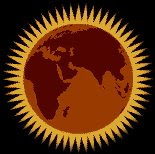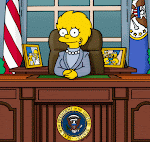
BY way of introduction: I was born in November 1979, shortly after the start of the "Iran Hostage Crisis"; my conscious awareness of politics began during the election of George H.W. Bush in November 1988. Upon watching my mother's vociferous booing in response to television coverage of Bush's victory over Michael Dukakis, I felt inspired to repeat her gesture the following morning at my elementary school when the principal announced--just as we had finished reciting the "pledge of allegiance,"--that we should applaud for the new president-elect. I instead booed and was met by the cold shock of my fourth-grade teachers' hand clasped against my mouth so as to muzzle my displeasure. Although I was unaware then of the ideological dynamics underlying this incident, it has in retrospect become an indelible mark on my nascent political awareness. I learned at that moment that while the freedom to dissent against our leaders is sacred, the ability to do so when necessary must not be taken for granted.
In November 1992, as I observed my mother's relative enthusiasm in the wake of Bill Clinton's victory over Bush, I received my first (and to-date only) glimpse of how it feels to identify with a victorious presidential candidate. By then I had a vague understanding of why Ronald Reagan and George Bush were names that should not be uttered at the dinner table: in my family's political universe, Republicans were "bad guys" and Democrats were, at least by comparison, "good guys." Yet it was not until high school that I really began paying attention to political developments as such, from domestic elections to wars on foreign soil (although I do remember being proud of the fact that my older sister marched against the 1991 Gulf War telling our parents--veterans of the 1960s--"This is my Vietnam!"). When I entered UC Santa Cruz in 1998 I quickly immersed myself in a progressive culture similar to what I had experienced growing-up in urban San Francisco. As I became increasingly interested in all-things-political, the 2000 election between Al Gore and George W. Bush happened to be my first opportunity to vote for president.
By this time I was inclined to view both the Republican and Democratic Parties as beholden to the interests of wealthy corporate donors rather than the electorate, which was only 58% of all those eligible in 1996, 60% in 2000, and 64% in 2004. On my father's advice I had supported former senator Bill Bradley (D-New Jersey) as a progressive alternative to Gore, the "establishment" candidate in the Democratic primary. Hence during the general election I was, like many on the Left, faced with an unpleasant choice between following my ideals and supporting Ralph Nader or making a pragmatic decision to vote for Gore as the "lesser of two evils." Indeed, that election proved to be far more consequential than anyone had anticipated when the US Supreme Court intervened to halt the ballot re-count in Florida thus swaying the contest towards Bush, despite Gore's significant victory in the popular vote.
I watched election night coverage on cable along with the protracted dispute that ensued after the court, buoyed by a decidedly pro-GOP bias on FOX News and other networks, effectively installed Bush in the Oval Office. Witnessing an election so blatantly manipulated by political elites using mass media outlets to spread propaganda, I subsequently abandoned whatever had remained of my blind faith in "the system." Still, while less-than-enthusiastic about a potential Gore presidency, and upset at the way Nader and the Green Party had been marginalized in mainstream discourse, I feared along with many others that this "stolen election" portended a disastrous descent into governmental lawlessness at the hands of Bush, Cheney, and company. Sure enough, the Enron scandal--which had potential implications that were arguably worse than Watergate--exploded in the summer of 2001 yet was immediately and permanently pushed from the headlines by the deadly terrorist attacks in September of that year. And 9/11 was, of course, just the beginning...
(Stay tuned for part two)












No comments:
Post a Comment